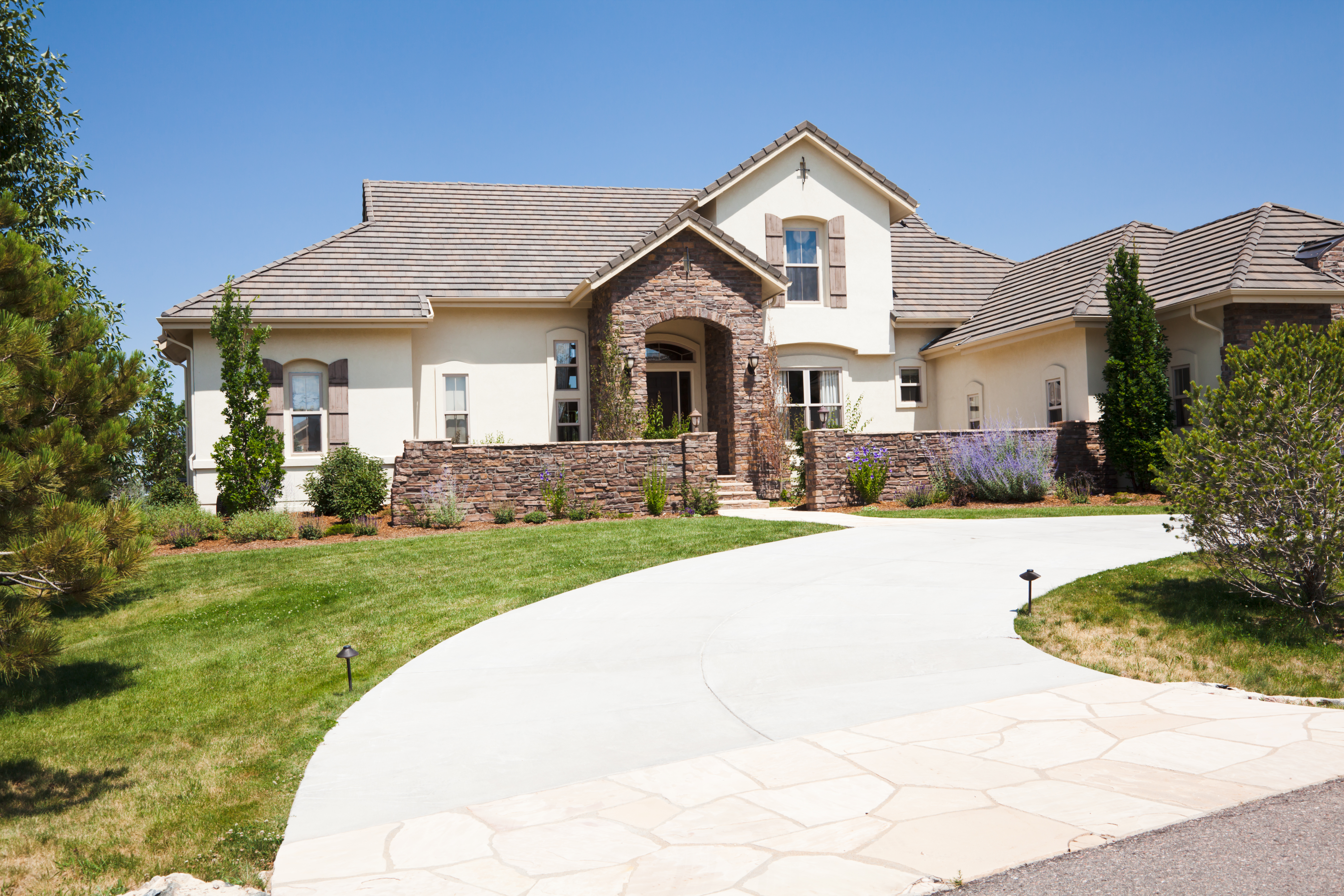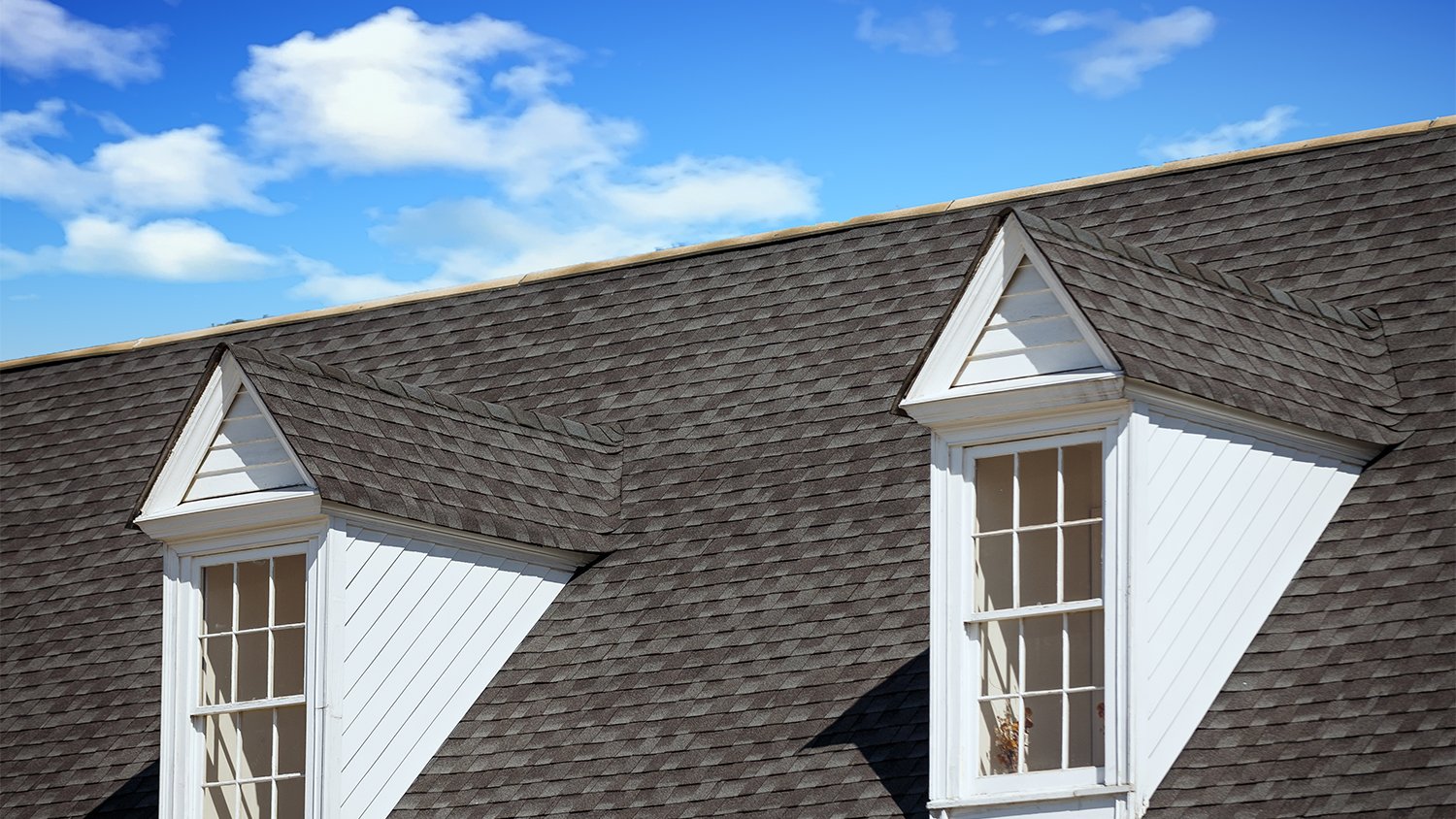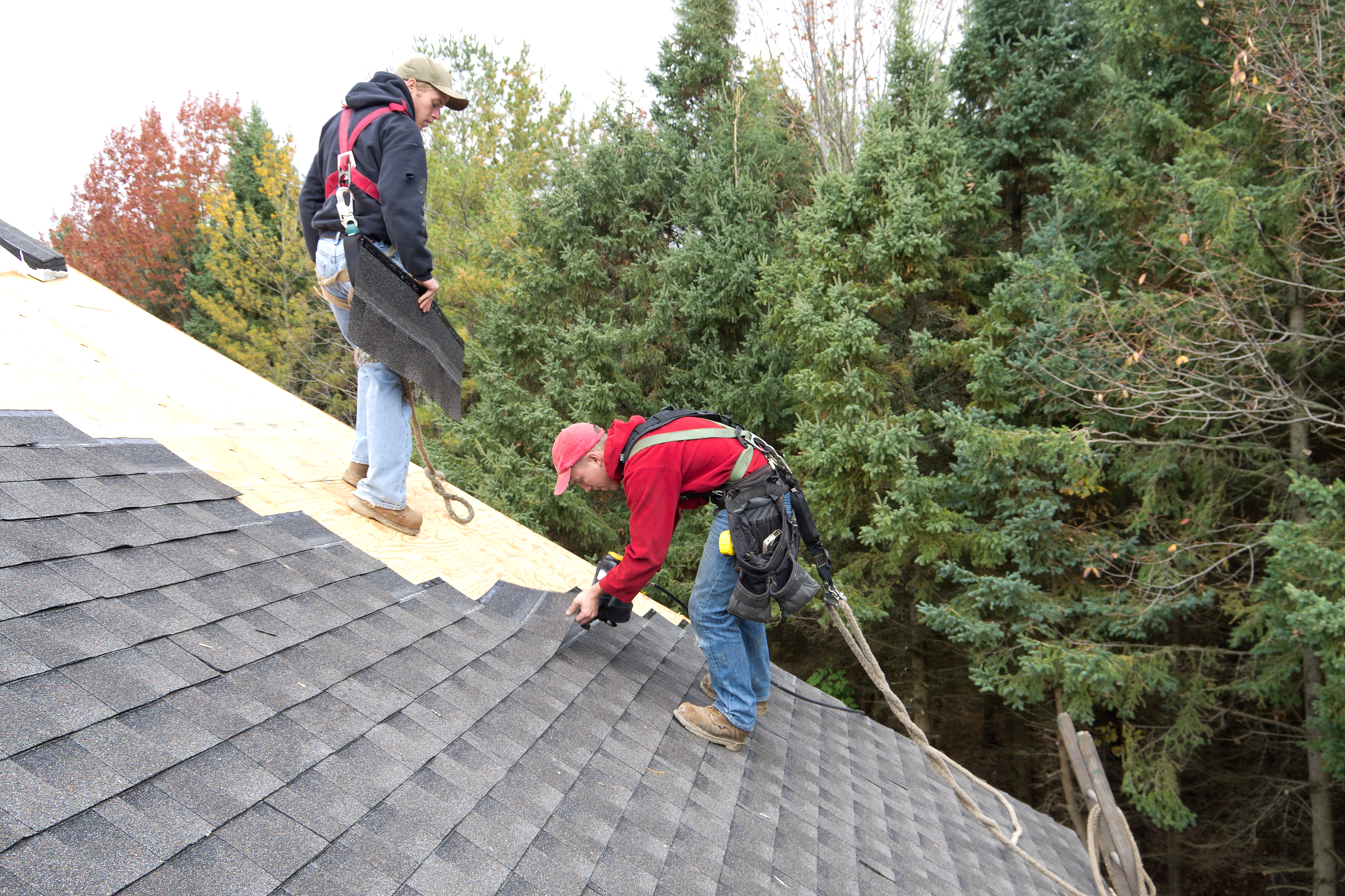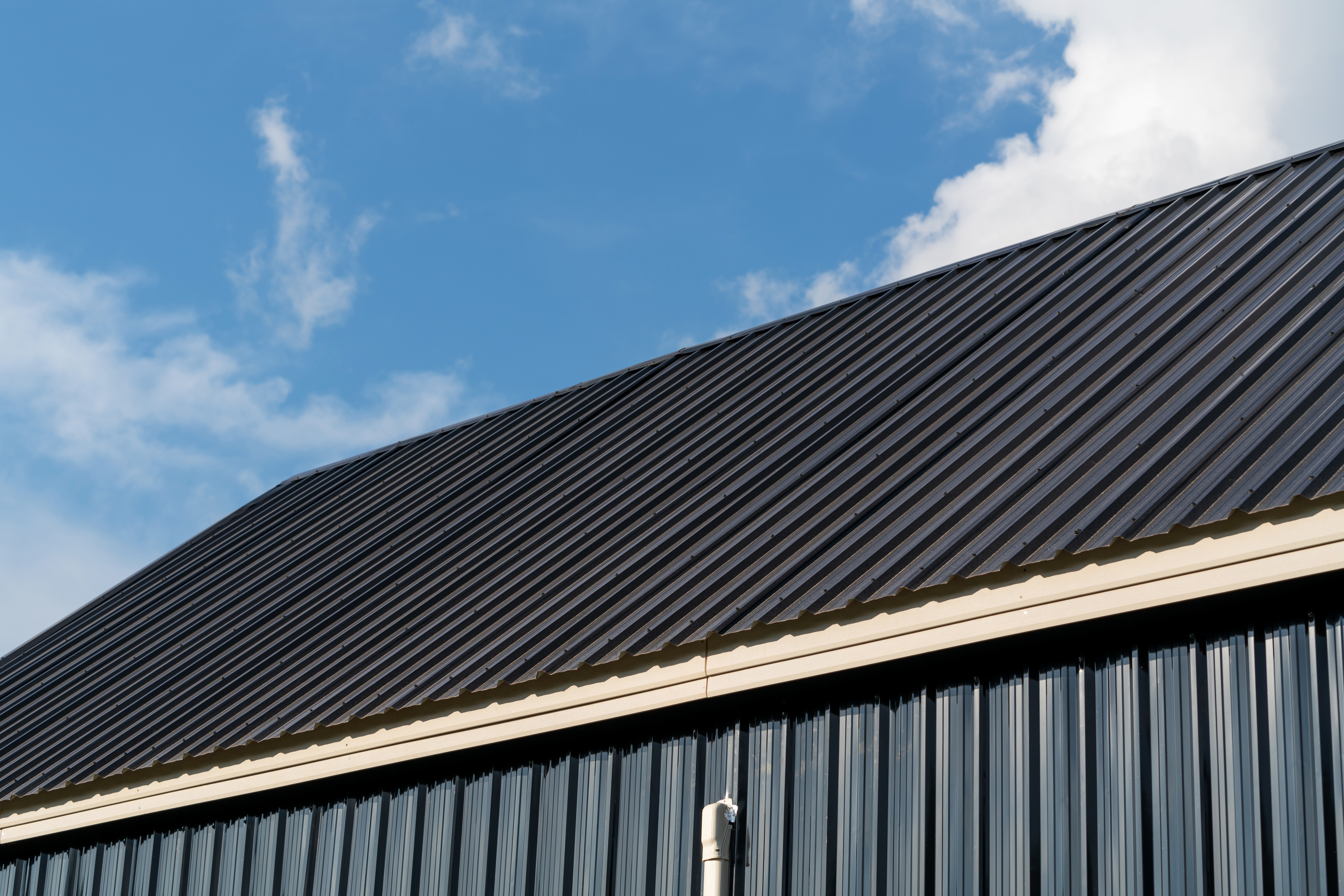
Dealing with roof damage and need to know what to budget for a fix? Learn about roof repair costs in Denver and what factors influence your total.
Raise the roof—and your knowledge


Asphalt shingles are the most common type of roofing.
They come in three types: 3-tab, dimensional, and luxury.
Pros include low cost, ease of installation, and long lifespan.
Cons include high maintenance and not being environmentally friendly.
Your home is your castle, and your roof keeps your castle dry. No one likes a wet castle, after all. That is why it is important to put some thought into your choice of roof installation.
Asphalt shingles may be the first material that comes to mind. They are certainly the dominant type of roofing in the United States. But there are other options out there, so how do you know if asphalt is the right choice for your roof?
This guide breaks down the pros and cons of asphalt roofing so you can make an informed decision.

Asphalt shingles are one of the most popular types of roofing available. Homebuilders like them for four main reasons—ease of installation, low cost, long lifespan, and wide color and style selection.
Asphalt shingles are the easiest of all roofing materials to install and offer greater flexibility during the installation process than other products.
Asphalt is not only a less expensive material to make shingles out of, but it also costs less from a labor standpoint to install asphalt shingles because they are so easy to work with. As a result, asphalt shingles are arguably the most economical option out there, as they can cut down on overall roof replacement costs.
Another great feature when it comes to asphalt shingles is how long they last—anywhere from 15 to 50 years—with thicker shingles tending to reach the latter end of that spectrum. As a result, you can get warranties that last for decades for higher-grade materials.
There are virtually unlimited color and style options when it comes to asphalt shingles. It is a great choice for homeowners who want to customize the look of their roofs. You can paint asphalt shingles or install solar shingles to add some style or energy efficiency, as well.
Asphalt shingles are relatively easy to replace, including individual shingles that have been damaged or fallen off. Unlike other types of roofing that may require you to replace an entire panel, like metal, it is usually possible to replace one shingle or a small area of asphalt shingles that have been damaged or torn off by hail, a falling tree branch, or wind.
Most shingle roofs last between 15 and 50 years, and good manufacturers offer warranties on their products when installed and maintained correctly. These warranties can exceed 50 years on some of the highest-quality materials. While these products cost more than products with shorter expected lifespans and corresponding warranties, the extra expense can be worth it for a more reliable, longer-lasting roof.
There are some downsides to asphalt shingle roofing that you should consider before making a decision. If you decide asphalt shingles are not for you, there are other types of roof shingles that could be a better fit.
While it is easy to install asphalt shingles, roof maintenance can be quite extensive as they need to be inspected often and get frequently repaired. You need to check them regularly for moss and algae and make sure severe weather has not damaged them. It is also smart to watch for low tree branches that could damage your shingles.
“I recommend having a roofer inspect your roof every three to five years to check the roof and do routine maintenance,” says Ami Feller, Expert Review Board member and owner of Roofer Chicks in New Braunfels, Texas. “If you have a lot of vegetation near your roof, you may need to have it checked or cleaned more often.”
Some roofing materials do a great job of insulation, which saves money on your energy bill. However, asphalt shingles are not one of those materials, so if that is important to you, you may want to consider other options.
While some manufacturers are more environmentally friendly than others, shingles are made from petroleum and fiberglass, so they are not the greenest option out there. Petroleum is a fossil fuel that, when combusted, releases greenhouse gases into the environment. Also, the production of fiberglass releases toxic air pollutants like styrene into the air.
Because they are made of asphalt, and asphalt can be sensitive to extreme cold and hot, shingle roofs may also be sensitive to temperature swings. Temperature fluctuations can cause expansion and contraction that result in cracks. Extremely hot temperatures and blazing sunlight can cause shingles to shift, expand, contract, crack, and shed granules, leading to a loss of waterproofing and a proclivity to leak.
That sensitivity to temperature means you need to time your shingle installation properly. Asphalt shingles should only be installed in warmer temperatures, as installation during cold and freezing temperatures can cause them to crack or become damaged. But do not wait for a hot day, either, as shingles usually absorb heat from the sun, making the surface dangerous on hot days.
Asphalt shingles simply do not last as long as other roofing options, with an expected lifespan of 15 to 50 years. But do not be fooled by that wide range—most 3-tab shingle installations last about 20 years, architectural shingles top out at about 25 years, and luxury shingles last about 30 years. Synthetic shingles, on the other hand, skew the average because they can last 30 to 50 years in more moderate climates.
In contrast, these are the average lifespans of other common roofing materials:
Metal roofing: 40 to 80 years
Wood shake roofing: 30 to 50 years
Clay and concrete tile roofing: 50 to 100 years
Slate roofing: 60 to 175 years
Asphalt shingles, especially cheaper ones, are vulnerable to strong winds and gusts. In some cases, they can flip up, tear, and even detach completely. This will allow rain and water to enter, so you will need to watch for damaged or missing shingles and replace them immediately.
If you live in an area prone to wildfires, you should think twice before installing asphalt shingles on your home, garage, or outbuildings. Asphalt will melt and burn, and flying sparks can ignite shingles. In fact, some insurance companies require homes in fire-prone areas to have roofing that is not asphalt-based. Instead, look into metal, slate, clay tiles, or another fire resistant roofing type; that can include fiberglass-backed shingles with a fire resistant underlayment, if you are determined to install shingles.
Asphalt shingles are oh-so-common, and they likely will not help your home to stand out from the rest of the houses on the block. If you want a unique-looking roof, there are many other less common options that can fit your home’s aesthetic. These may also raise the value and curb appeal of your house.
| Pros | Cons |
|---|---|
| Affordable to buy and install | Low insulation value |
| Large color and style section | Shorter lifespan than other types of roofing |
| Easy to replace | Not environmentally friendly |
The most commonly sought-after asphalt shingle roof repair involves fixing water leaks. Homeowners also want recommendations from a roofer for repairs that prevent damage and keep their roofs in good condition. Other issues include broken, missing, cracked, and loose shingles, water stains, and other related problems.
Asphalt shingle roofing is a roofing material that uses shingles made from a material called asphalt, which is a semi-solid form of petroleum that helps to waterproof a roof. There are three main types of asphalt shingles: 3-tab, dimensional, and luxury.
This type of asphalt shingle is so named because it has three tabs, which are cutouts along the lower edge of the shingles and make for a uniform, flattened pattern when correctly installed. This is the most popular type of asphalt shingle on the market; however, many companies are phasing out 3-tab shingles in favor of architectural (or dimensional) asphalt shingles. That is partially because 3-tab shingles have a shorter lifespan and because architectural shingles are a more premium material that provides a textured, layered look that many homeowners prefer.
Dimensional shingles, also called laminate or architectural shingles, are often in a random pattern, or they may attempt to imitate the look of a wood shake roof. They are not as common as 3-tabs but are growing in popularity in some areas of the country. Dimensional shingles have a high wind rating and are generally considered to be the best value.
Luxury shingles, also known as premium or designer shingles, tend to be significantly larger than standard asphalt shingles. They are occasionally meant to imitate the appearance of slate. These can be expensive, sometimes double the price of 3-tabs.
From average costs to expert advice, get all the answers you need to get your job done.

Dealing with roof damage and need to know what to budget for a fix? Learn about roof repair costs in Denver and what factors influence your total.

In need of a new roof to weather the Colorado snowfall? Learn about roof replacement costs in Denver and what local factors affect your pricing.

Understanding metal roof costs in Denver will help you budget appropriately for your project and get you ready to start getting bids from local contractors.

If you’re an experienced roofing DIYer and want to tackle learning how to seal a roof, this guide will help you navigate all the different steps.

Understanding the styles and types of metal roofs available can help you make the best choice for your home. We’ll discuss the best options for metal roofs.

Know the different pros and cons of different types of asphalt shingles, including three-tab, architectural, and luxury shingles.